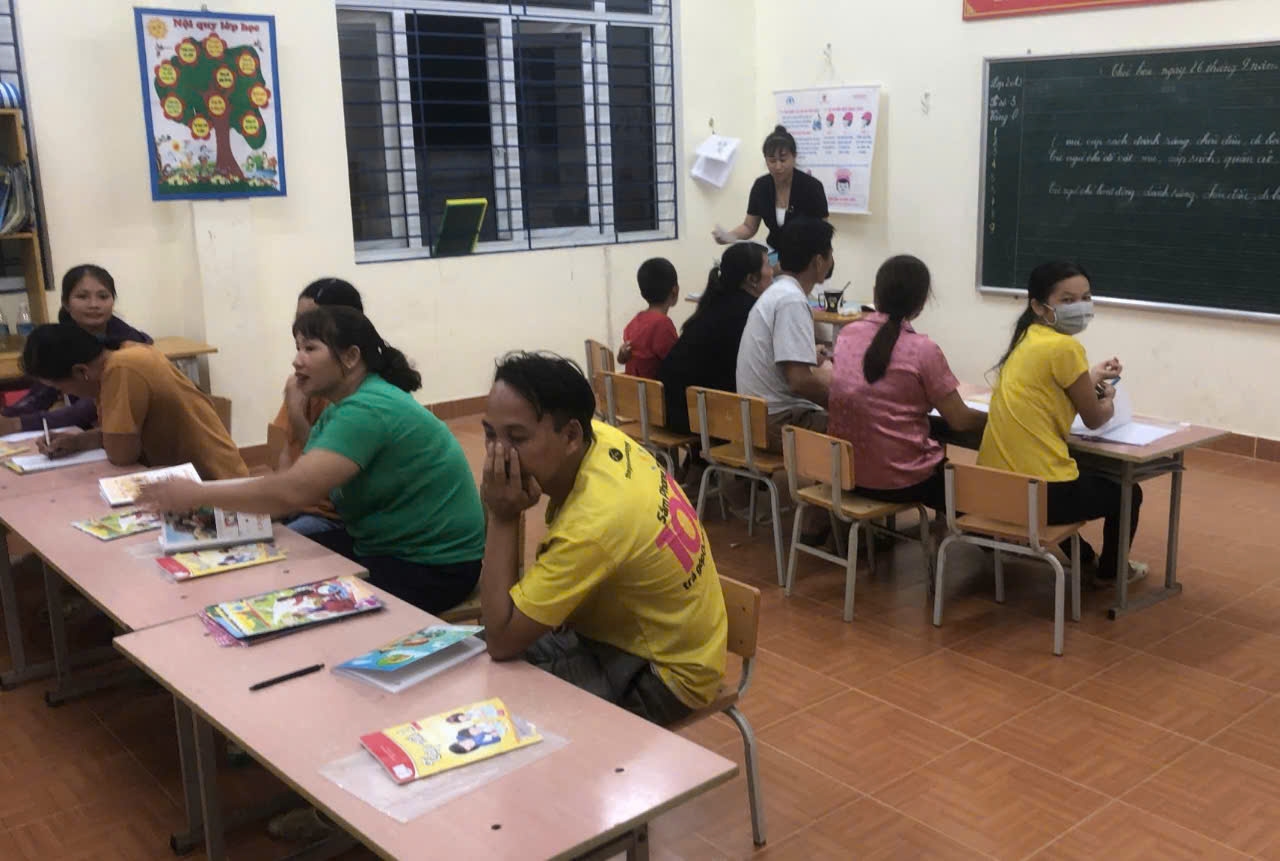
As a highland commune of Ha Long city, Dong Lam has 728 households with 2,775 people, of which the Dao ethnic group accounts for 98.2%. People's lives are still difficult, mainly depending on agriculture and forestry, and the intellectual level of the people is still low. In particular, the commune still has a situation of illiteracy or re-illiteracy.
Faced with this reality, the Dong Lam Commune Community Learning Center has proactively established teams and assigned tasks to staff and teachers to go to villages to conduct propaganda and mobilize people to attend literacy classes. However, most of the students are between the ages of 18 and 60 and are the main labor force in their families. Therefore, the time for literacy classes is usually arranged by teachers and the center in the evening, from around 6:30 p.m. to 9:30 p.m.
In addition, during the summer vacation, teachers also take advantage of rainy days when students cannot go to work to mobilize them to attend classes fully.
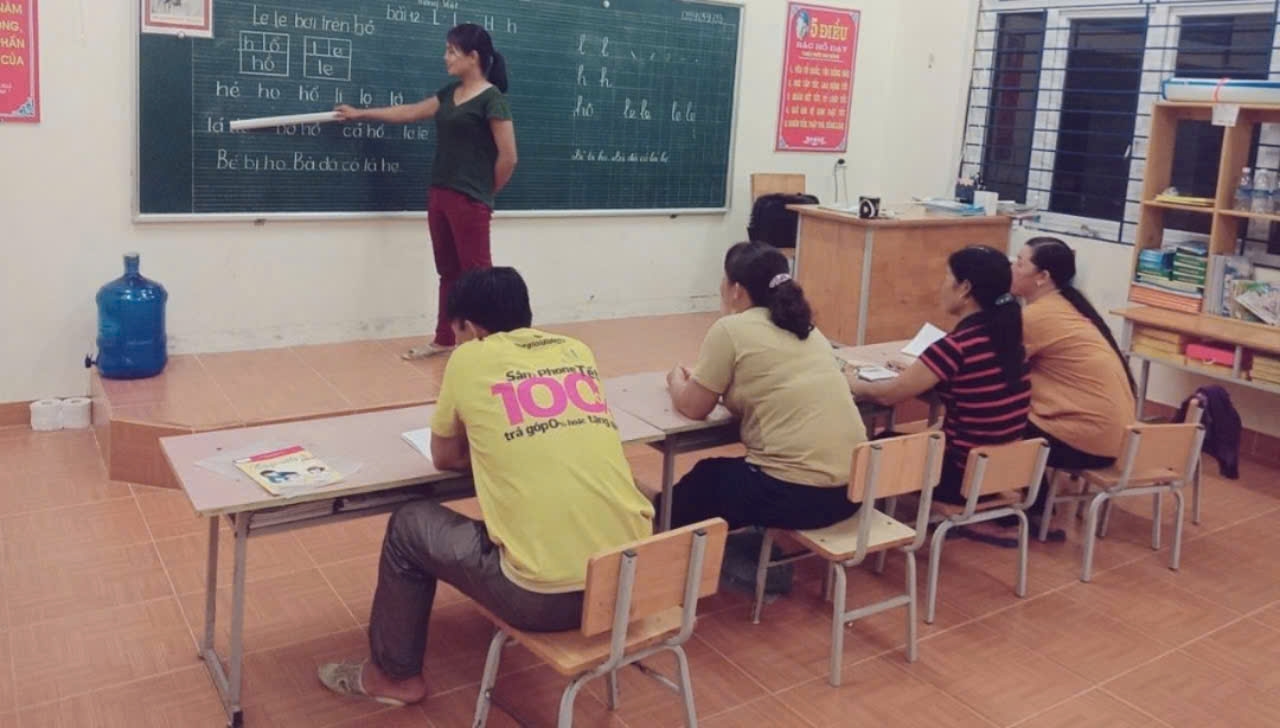
Ms. Trieu Thi Thanh, from Dong Quang village, a student of the literacy class held in Dong Lam commune, said that in the past, because her family was too poor, she did not have the conditions to go to school. Because she could not read or write, her life faced many difficulties.
“Thanks to the teachers’ help, I now know how to read, write and do some basic calculations. They also guided me on how to use my phone to study and search for information on the Internet, which makes my daily life and work much easier,” Ms. Thanh confided.
Many other students shared that after learning to read, they could understand personal information such as birth certificates and health insurance cards. They could read hospital room names and clearly understand their rights when receiving benefits. Their rich Vietnamese vocabulary helps them access propaganda information and scientific knowledge more easily. In particular, literate women can teach their children life skills and protect themselves during the ages when early marriage or dropping out of school often occurs.
Teacher Vu Thi Thom, a teacher at Dong Lam 1 Primary and Secondary School, shared: Teaching students in literacy classes is not the same as teaching students at school. Most of the students in literacy classes are older and have only been used to farming and speaking their ethnic languages all year round, so their ability to absorb letters is quite slow compared to younger students. Therefore, teachers must be meticulous and patient so that students can grasp letters, spell, and combine letters. The advantage of teaching students in literacy classes is that they are all very serious and enthusiastic about learning.
“In particular, in the past few years, in addition to teaching spelling, reading, writing and basic calculations, we have gradually introduced students to information technology: guiding students to practice reading on YouTube, and learning math by not only knowing how to calculate on paper but also using a calculator and calculating on a phone… This will be much more convenient!”
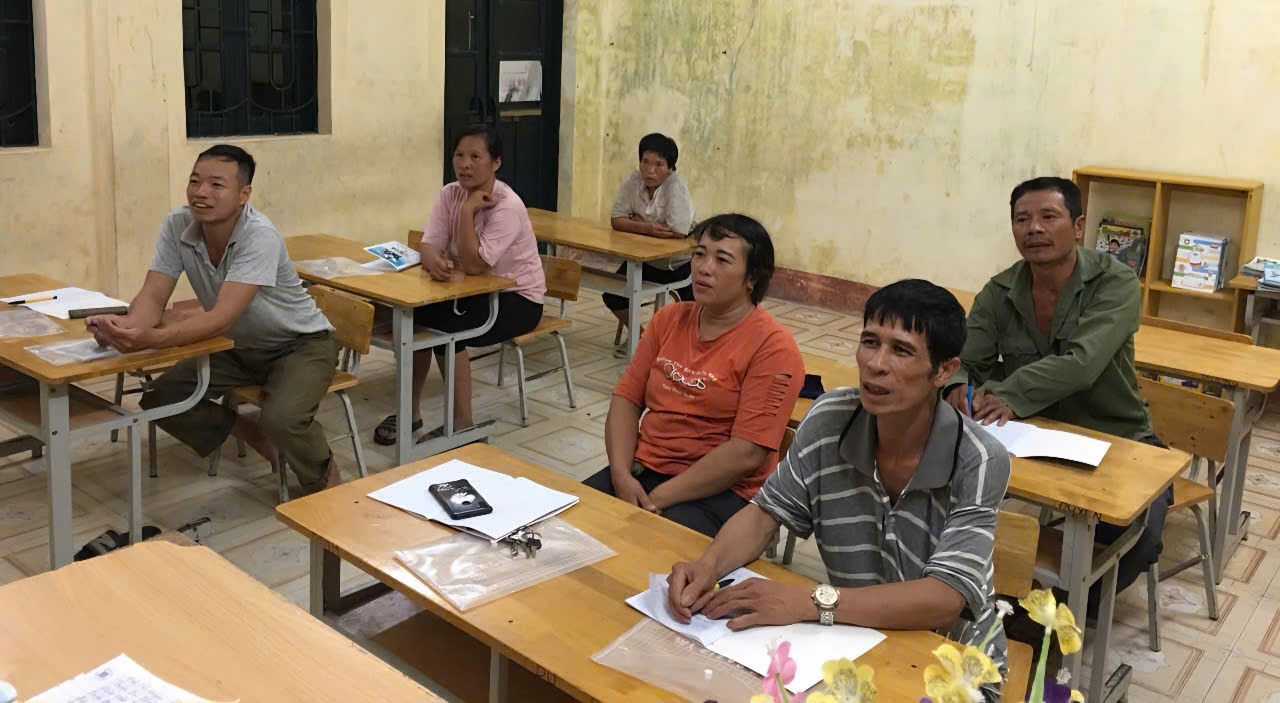
Mr. Vu Thanh Tuan, Chairman of Dong Lam Commune People's Committee, said: In recent years, the education sector and authorities at all levels have focused on organizing literacy classes for ethnic minorities in the highlands. In Dong Lam Commune from 2022 to 2024, a total of 9 literacy classes were opened with 318 students. Specifically, in 2022 (4 classes with 175 students), 2023 (3 classes with 48 students) and 2024 (2 classes with 95 students).
According to Commune Chairman Vu Thanh Tuan, looking back at the process of organizing literacy classes in the locality was not easy, because most of the students were the main laborers in the family, working hard to earn a living on the corn fields during the day and taking care of their families at night, so everyone was reluctant to go to school. After reviewing the number of illiterate people, the Commune People's Committee directed the Community Education Center to coordinate with the Department of Education and Training of Ha Long City, local schools, and village chiefs to open literacy classes for the people.
The commune also directed associations and organizations to visit each household and meet each person to propagate and mobilize; assigned civil servants to be in charge of each group of illiterate people to mobilize and help them complete the program of the literacy class.
In order to improve the quality of literacy, the Community Education Center has also coordinated with schools to select experienced teachers who understand customs and practices, know the ethnic language, and are enthusiastic about teaching. Thanks to this, older students no longer feel inferior when they go to school, and overcome difficulties in going to class to learn to read and write.
Completing the course in literacy classes helps people in the mountainous commune of Dong Lam to communicate more easily and confidently participate in village activities; as well as apply scientific advances in agriculture , improve income, reduce poverty and improve the quality of life.
It can be seen that from the close attention and direction of the Party Committee, the government, and the team of teachers in organizing and implementing fully and promptly the tasks of eliminating illiteracy. Through special classes, teachers diligently teach and are helping many people in Dong Lam commune to read and write fluently, opening up opportunities to change their lives.
"Dong Lam is determined to strive to achieve 100% literacy level 2 or higher for local residents by 2024," affirmed Mr. Vu Thanh Tuan, Chairman of Dong Lam Commune People's Committee.










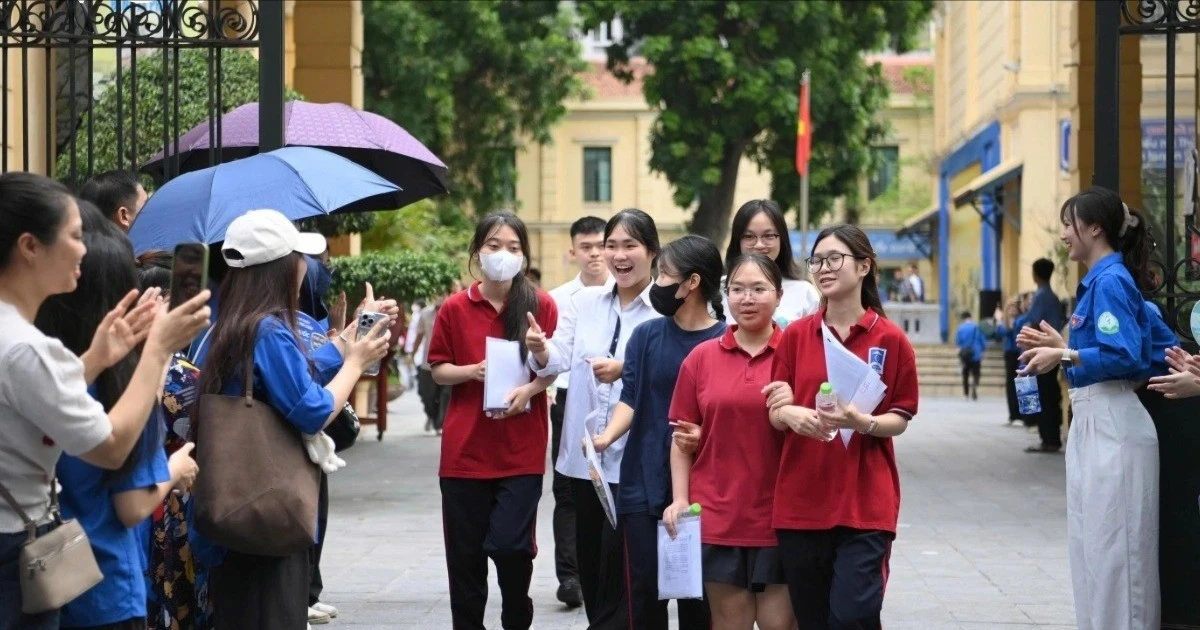
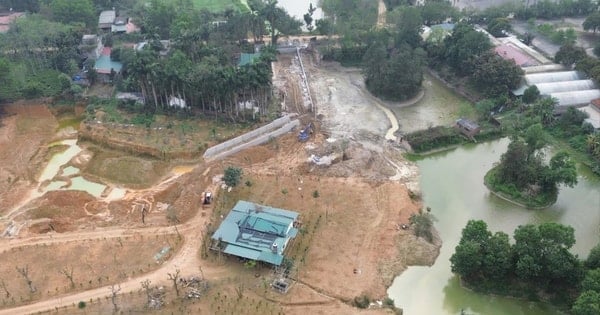


















![[Photo] An Phu intersection project connecting Ho Chi Minh City-Long Thanh-Dau Giay expressway behind schedule](https://vstatic.vietnam.vn/vietnam/resource/IMAGE/2025/8/21/1ad80e9dd8944150bb72e6c49ecc7e08)
































![[Photo] Politburo works with the Standing Committee of Hanoi Party Committee and Ho Chi Minh City Party Committee](https://vstatic.vietnam.vn/vietnam/resource/IMAGE/2025/8/21/4f3460337a6045e7847d50d38704355d)

































Comment (0)